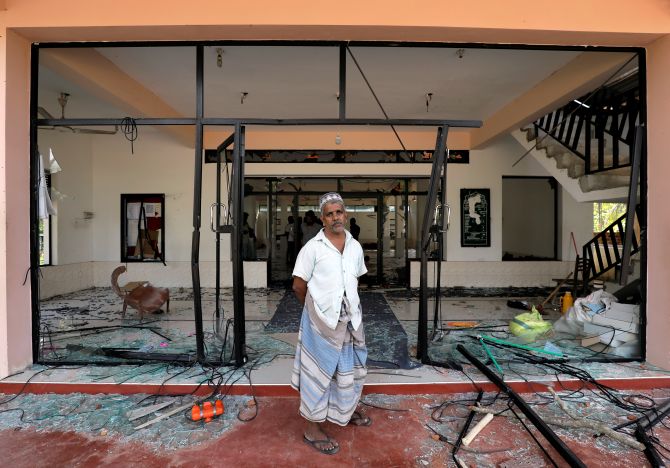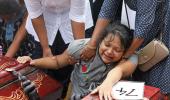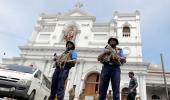A Muslim man has been killed in northwestern Sri Lanka as majority Sinhalese mobs set fire to shops and vehicles as communal violence broke out in the aftermath of the Easter Sunday attacks, a Cabinet minister said Tuesday.

The government on Tuesday relaxed nationwide night curfew in all areas except the northwestern province where the Muslim man was killed by a mob on Monday, Rauff Hakeem, a Cabinet minister and leader of the Sri Lanka Muslim Congress, said.
Sri Lanka Police imposed the island wide curfew on Monday as anti-Muslim violence broke out in the northwestern province spread to other areas in the country as well.
Majority Sinhalese mobs set fire to Muslim-owned shops and vehicles. Homes and mosques were also vandalised by large groups of people armed with sticks and weapons.
The Sri Lankan government also reimposed a ban on social media following the violent clashes.
The recent violence is a fresh backlash from the Easter attacks where nine suicide bombers, including a woman, carried out a series of devastating blasts that tore through three churches and three luxury hotels, killing 258 people and injuring over 500 others.
Meanwhile, President Maithripala Sirisena has issued a gazette notice banning three Islamic extremist organisations, including National Thowheeth Jama'ath that was blamed for the Easter bombings.
The other two banned organisations are the Jama'athe Milla'athe Ibrahim and the Willayath As Seylani.
In an address to the nation on Monday night, Prime Minister Ranil Wickremesinghe said the military has been asked to quell the anti-Muslim riot and urged public cooperation to the security forces to bring the situation under control.
In the wake of violence being reported in some areas, Sri Lanka Army Chief Lieutenant General Mahesh Senanayake warned anyone instigating violence and destroying property that the armed forces would not hesitate to use maximum force to stem any violence.
He said the armed forces will ensure that the country will not be getting back to a situation of violent activities and the violence in terms of radicalization and the terrorists.
Muslims account for 10 per cent of the population and are the second-largest minority after Hindus.
Around seven per cent of Sri Lankans are Christians.











 © 2025
© 2025